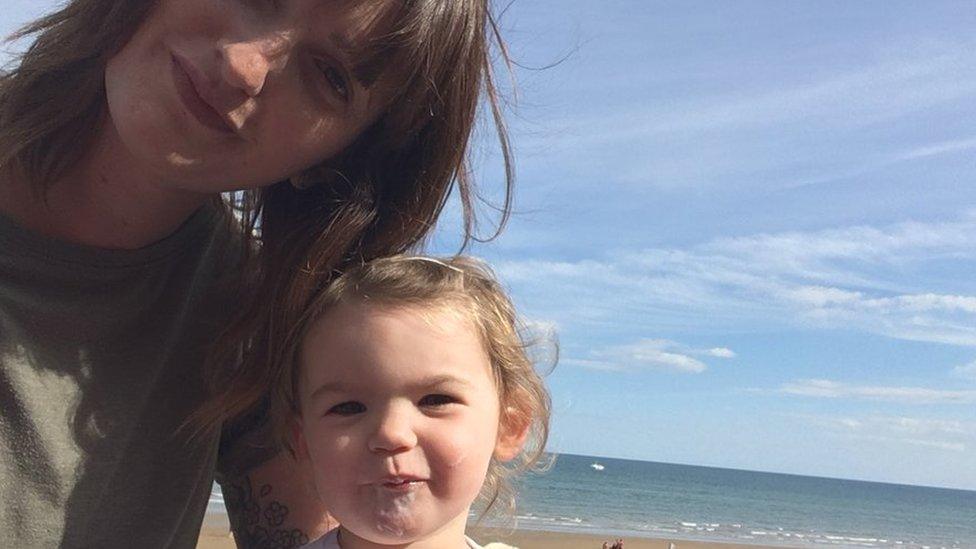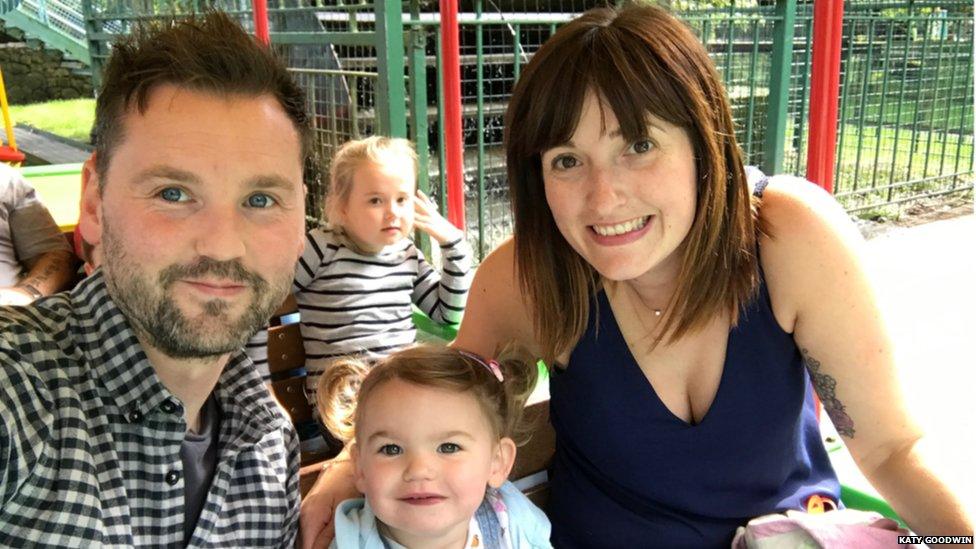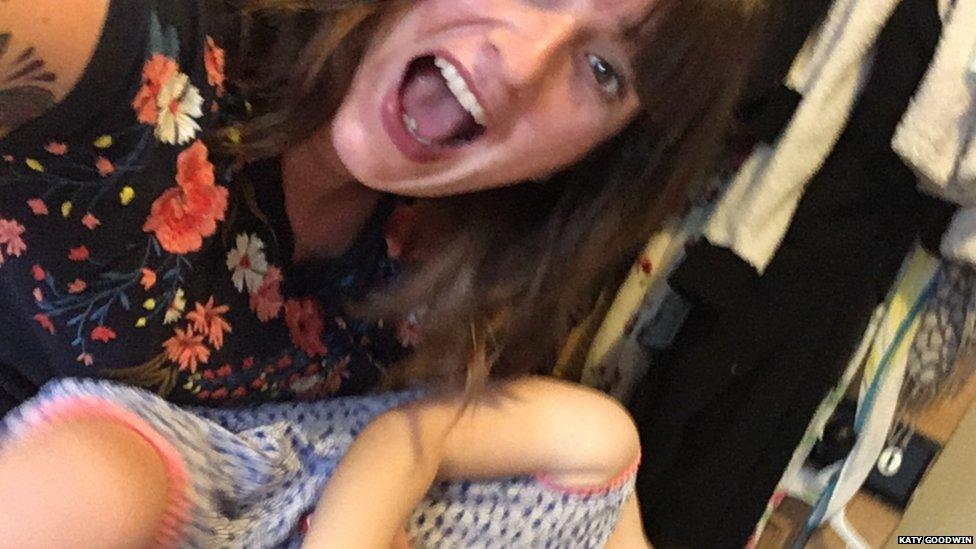How online NHS therapy helped me with my post-natal depression
- Published

Appointments for online therapy have doubled in the past two years in England to around 14,000 a month.
Although that only accounts for 4% of NHS mental health treatments, the number of people choosing to go digital is growing, according to figures seen by BBC Radio 5 live.
Katie Goodwin, 32, from Bridlington, has told Newsbeat why online therapy was the best option for her.
"I thought I'd give it a go because we are an online culture now," she says.
"A lot of my friendships and even my relationship with my husband is talking online."
Katie lives with her husband and her two-year-old daughter Amelie in Bridlington, a coastal town near Scarborough in the East Riding of Yorkshire.
She was diagnosed with post-natal depression after the birth of her daughter.
"The symptoms often just mimic what you would feel in pregnancy or after you've had a baby," she told Newsbeat.

"So tiredness, crying, desperation [and] worry."
But she says she realised it was more than baby blues when she started to have suicidal thoughts.
"This was all consuming, not just daily. This was kind of second to second," she says.
Critics of using online services to treat mental health have questioned how effective the service is, suggesting it's cutting corners when it comes to mental health.
But Katie told us how, of all the options she was offered, the flexibility and self-control of going digital was most appealing to her.
"I was offered the route of medication first, which I think is a fabulous platform to get yourself back on an even kilter.
"I knew that for me, that didn't feel like a long-term solution. It can be for some, and that's wonderful, but it wasn't the right course for me."

She also tried face to face therapy, but found she preferred the distance you get when talking to someone online.
The NHS has its own secure networks and forums where you can speak to therapists, take online courses and get support from peer groups.
"Initially you book your appointment and a specific time, as you would with any regular therapies," she says.
"And then you log in and it's a messenger service. So it's instant messaging back and fourth.
"And you just talk through what's going on - they almost gave me homework in the form of coping strategies.
"You get a script of what you've said, which is great because sometimes - especially if your emotional - I know I can't always remember what I've said."
Find us on Instagram at BBCNewsbeat, external and follow us on Snapchat, search for bbc_newsbeat, external